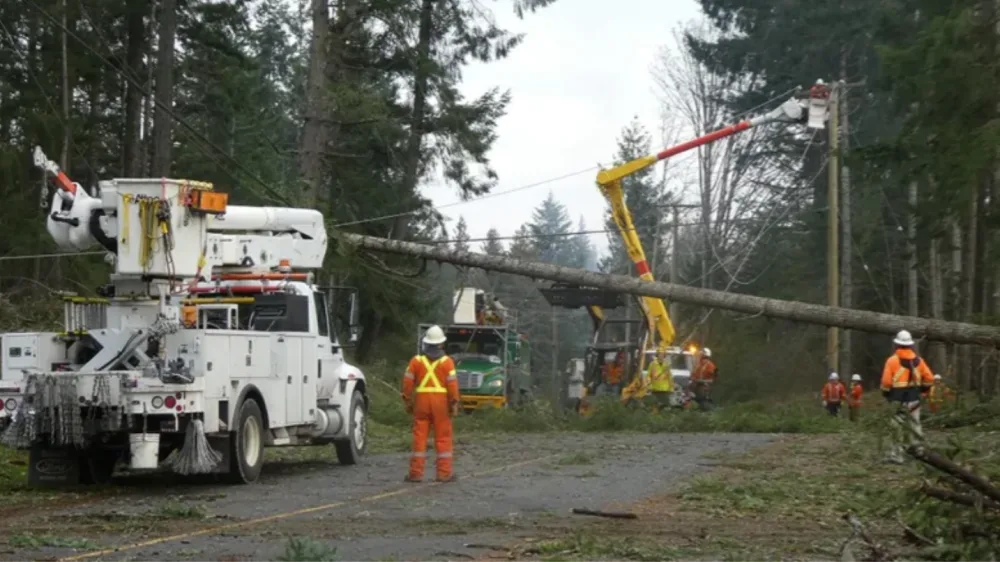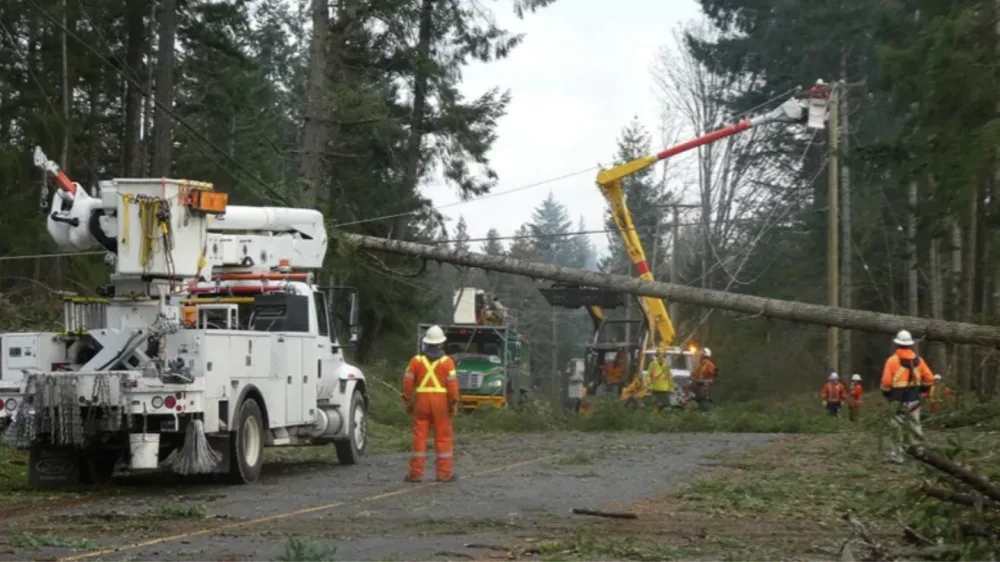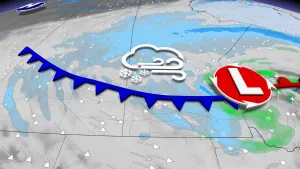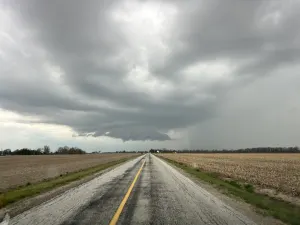
Toilet paper, hand sanitizer won't help during a power outage, B.C. Hydro warns
BC Hydro says a recent survey shows more people have purchased supplies to cope with the COVID-19 pandemic than for a winter storm which could cut power to homes.
While people have toilet paper, hand sanitizer and groceries to deal with the pandemic, they're lacking items needed to get through a winter storm such as a first aid kit, bottled water and a flashlight.
The Crown corporation commissioned the research to gauge whether people in B.C. are prepared for surviving in a cold, dark house if the power goes out due to high winds or snow.

Photo: BC Hydro crews repaired 1,100 spans of wire, 300 power poles and 170 transformers damaged in a winter storm in December 2018. (BC Hydro/Twitter)
BC Hydro said the number of storms that the province is experiencing has gone up by 117 per cent since 2014.
Spokesperson Susie Rieder said the storm events have affected more than one million customers over the past few years.
"A storm season lasts from about late October, early November, all the way through February. So it does last for a few months and sometimes it goes longer than expected [because of] global warming. It's a little more unpredictable these days so just being as prepared as possible for long-term outages is the best."
The survey found nearly 20 per cent of British Columbians think they are more prepared for winter storms this year because of COVID.
However, Rieder said the research found about 30 per cent have not taken any steps to prepare for power outages that could last several hours or days.
"It's a difficult year. It's a year where if you are riding out a storm at home, there's not really that option to go to a public place or go to a friend's house."
WATCH BELOW: WHAT YOU SHOULD HAVE IN YOUR EMERGENCY KIT
Go HERE for our complete coverage of the COVID-19 pandemic
She said over half of people surveyed do not have an emergency preparedness kit and don't realize they should have supplies such as bottled water for at least 72 hours on hand.
The survey also found that British Columbians aged 18 to 34 who are considered millennials are the least prepared for extended power outages with nearly half admitting that they're not prepared at all.
However, research showed people living on Vancouver Island and in Northern B.C. were more prepared for problems related to winter storms compared to people living in the Lower Mainland.
BC Hydro says 803 British Columbians were surveyed for the study between Oct. 8 and Oct. 11, 2020. The margin of error for the survey is plus or minus 3.5 per cent, 19 times out of 20.
This article, written by Meera Bains, was originally published for CBC News









